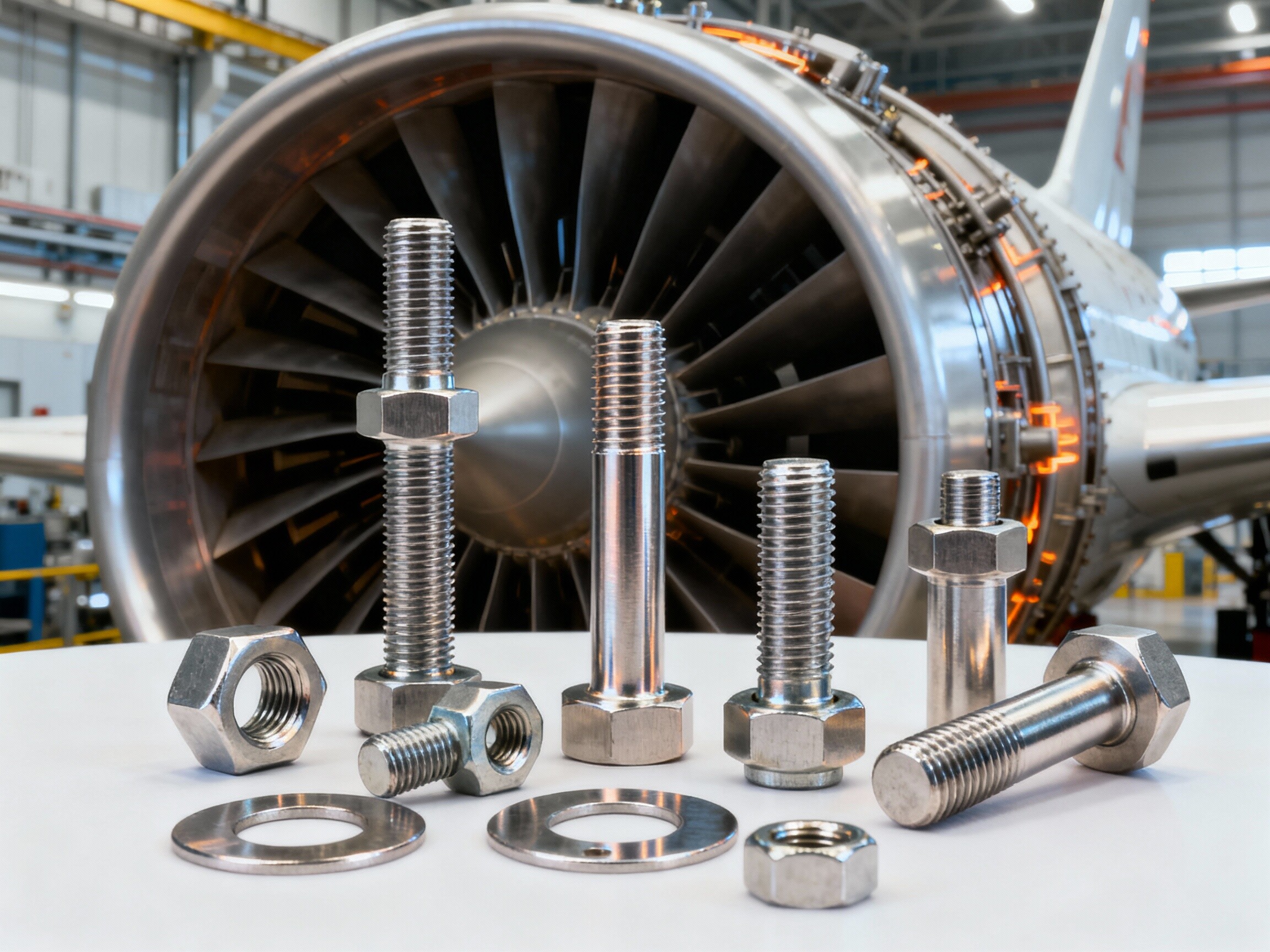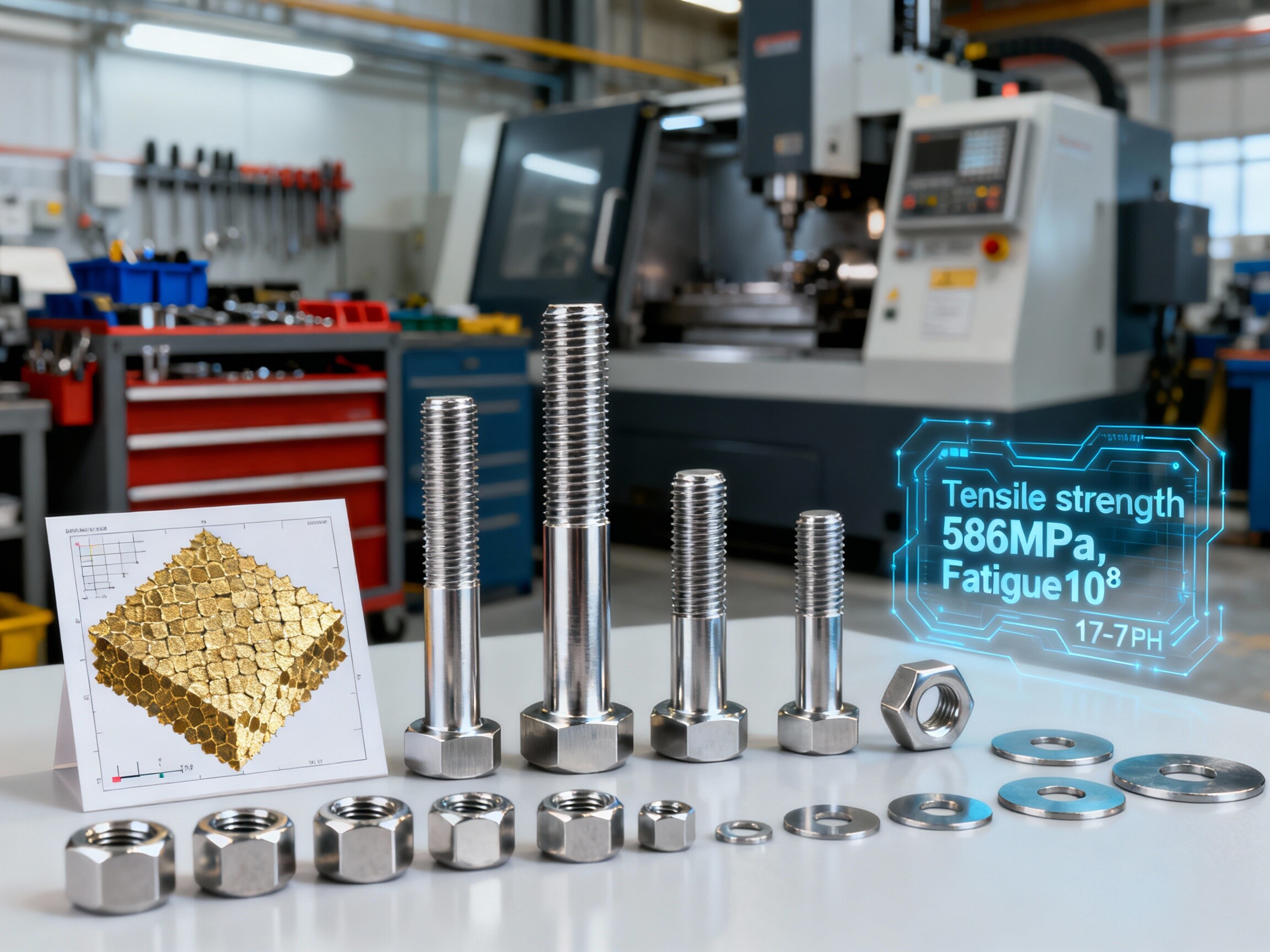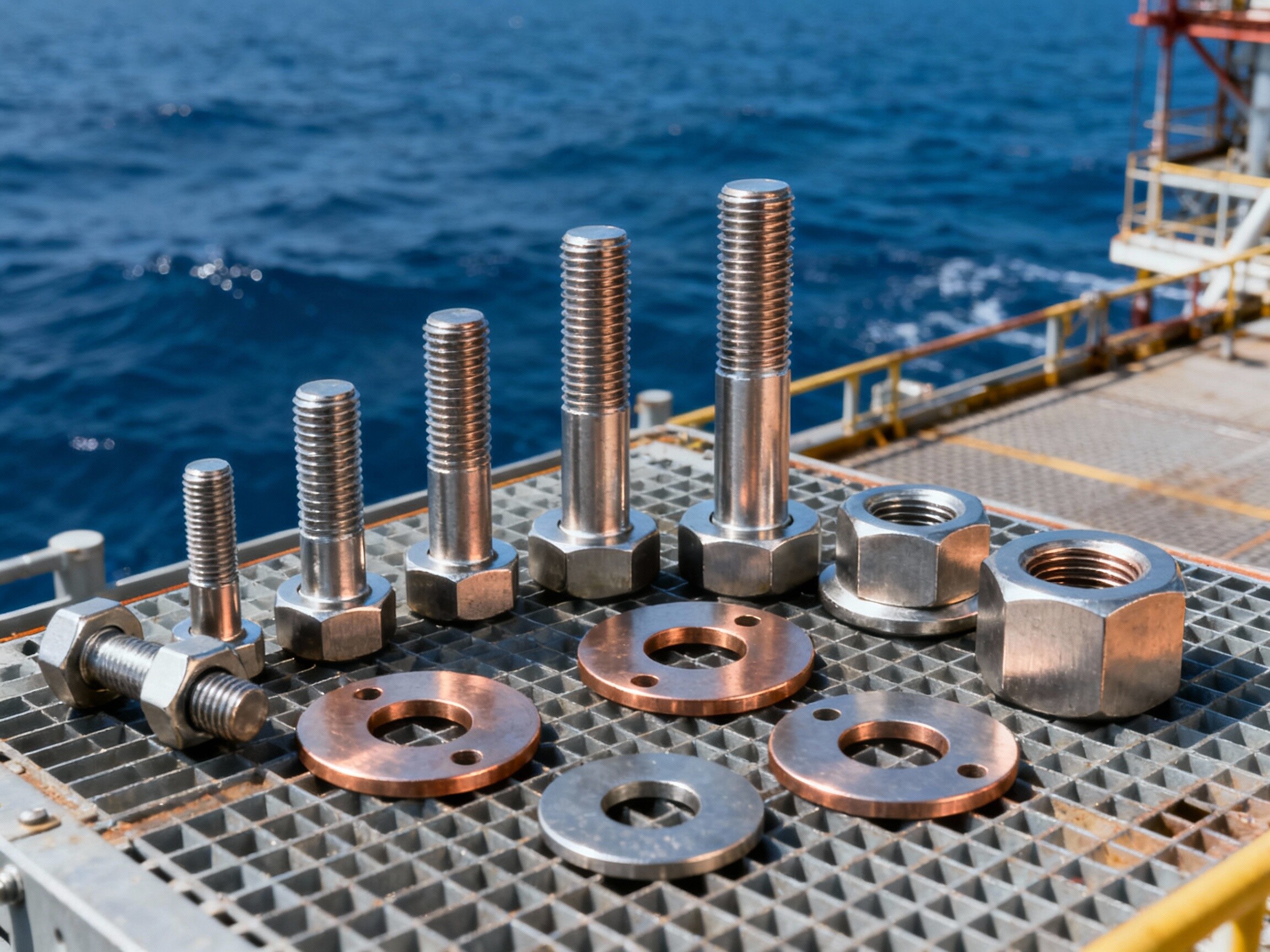Categories List
254SMo/6Mo and Alloy 31 Fasteners for Corrosive Environments
When dealing with scrubbers in corrosive environments, choosing the right fastener material is crucial. The two preferred materials are EN 1.4547 (254 SMO/6Mo) and EN 1.4562 (Alloy 31).
254 SMO/6Mo
Type: Super Austenitic Stainless Steel
Features:
Combines moderate tensile strength with high ductility
Excellent corrosion resistance in seawater and various industrial environments
Typical PREN values of 42 – 44 ensure high resistance to pitting corrosion
High resistance to crevice corrosion
Applications: Mainly used in scrubbers in seawater and chemical industries, as well as other applications requiring high corrosion resistance.
Alloy 31
Type: Nickel-Chromium-Molybdenum Stainless Steel
Features:
Nitrogen and copper added
Combines moderate tensile strength with high ductility
Excellent corrosion resistance in sulfuric acid, reducing and oxidizing media
Strong resistance to corrosion and corrosion-erosion in phosphoric acid environments
Typical PREN values ≥ 48, ensuring high resistance to pitting corrosion
Applications: Mainly used in chemical processing, flue gas desulfurization systems and other applications that require performance in extreme chemical media.
Summary:
254 SMO and Alloy 31 are both preferred fastener materials for scrubbers used in corrosive environments, and they ensure long-term stable operation of the scrubber by providing high corrosion resistance and moderate mechanical properties. When selecting materials for a specific application, the chemical nature of the media, temperature, pressure and other operating conditions need to be considered to ensure that the fastener material selected can meet the required corrosion resistance.
Request A Quote! We'll respond as soon as possible(within 12 hours)
Get a Quote



